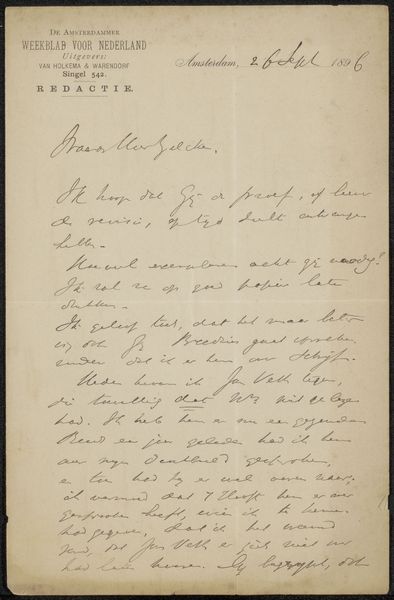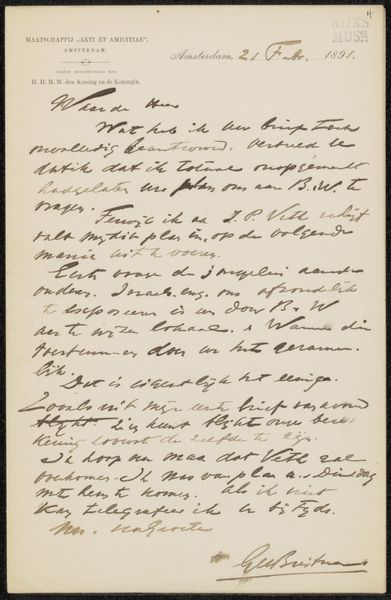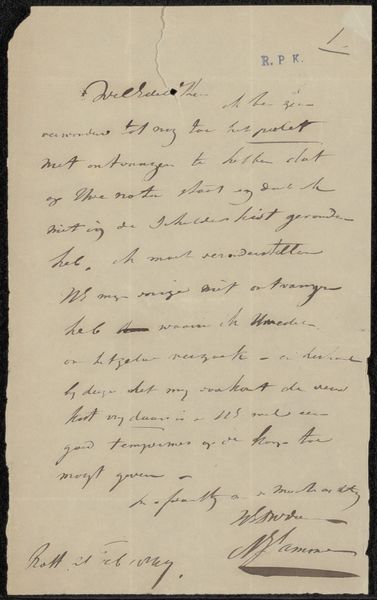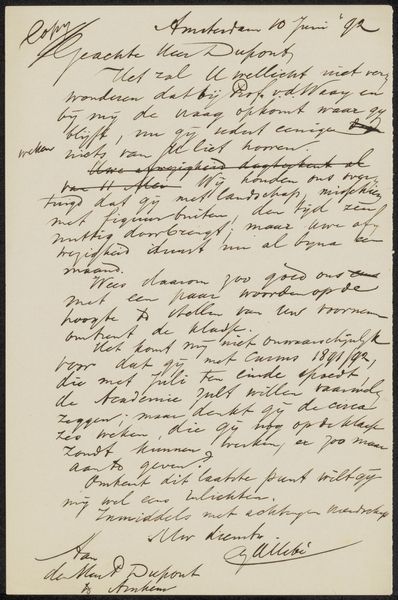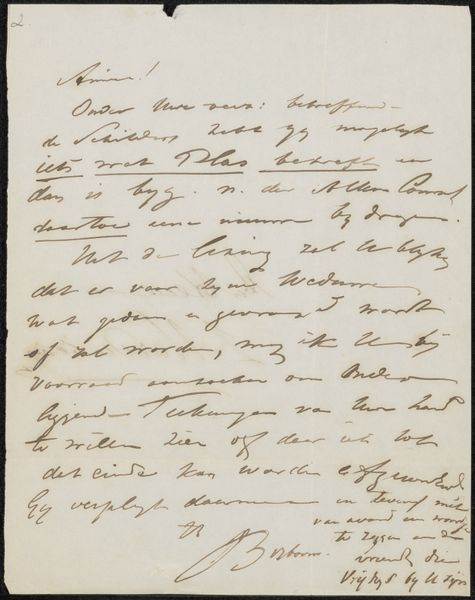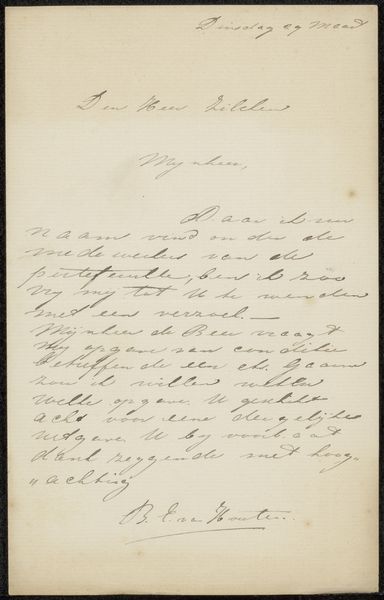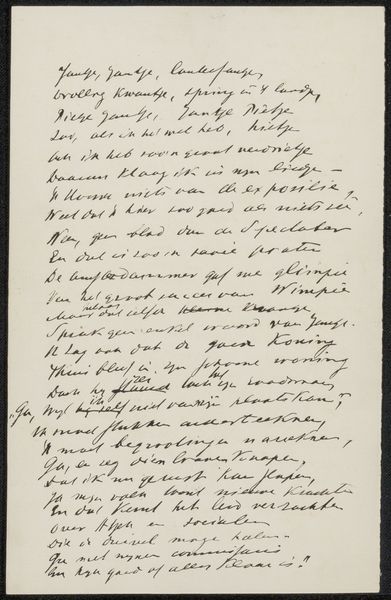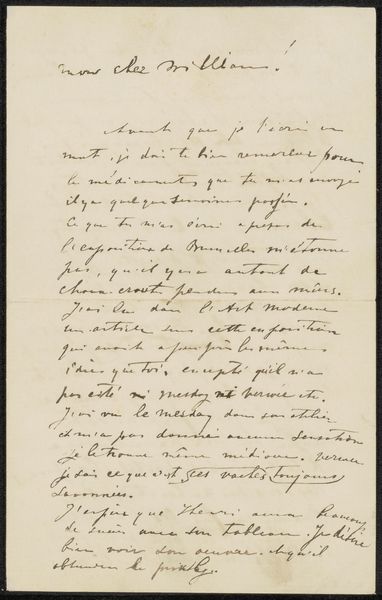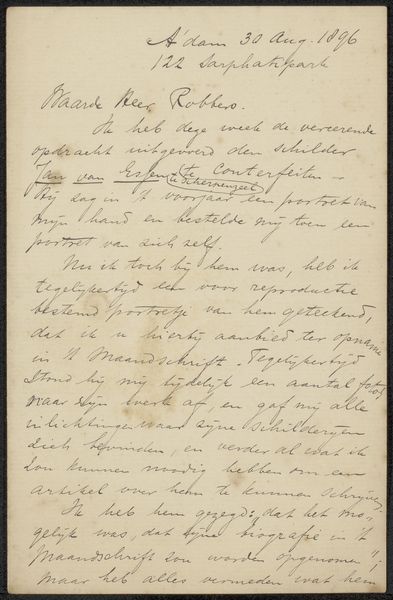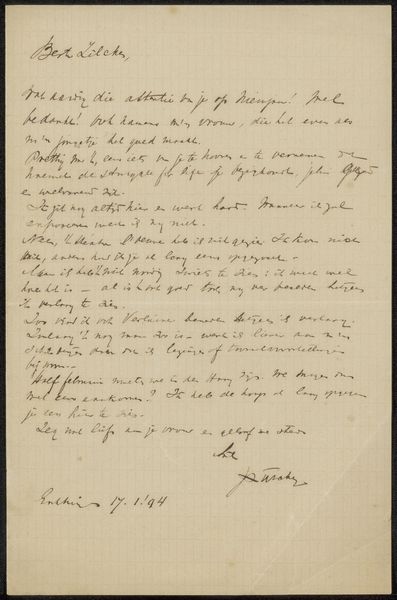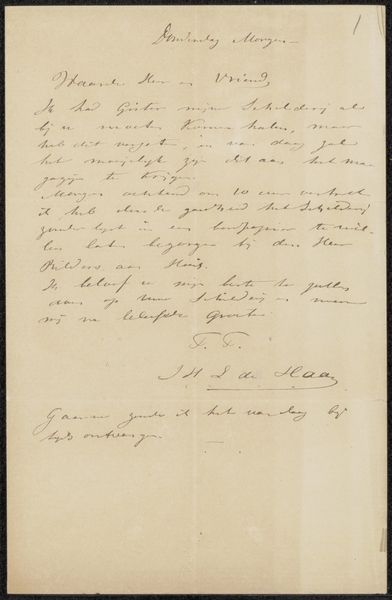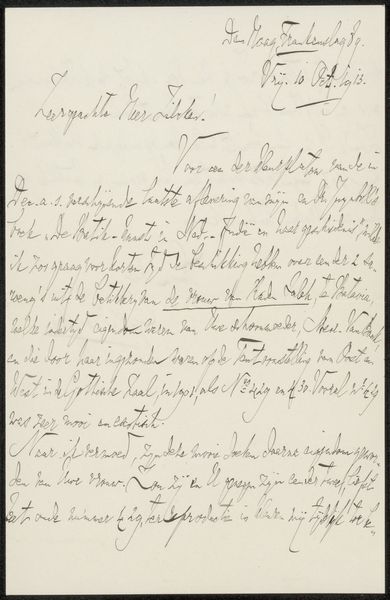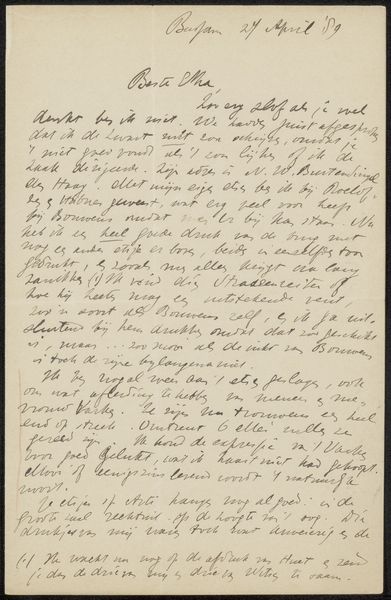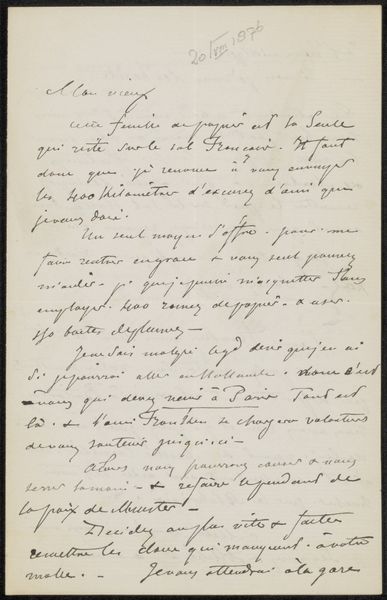
drawing, ink, pen
#
drawing
#
pen drawing
#
dutch-golden-age
#
ink
#
pen work
#
pen
#
realism
Copyright: Rijks Museum: Open Domain
Curator: So, this is "Brief aan Jan Veth" by Willem Bastiaan Tholen, thought to be from 1886. It's an ink and pen drawing held at the Rijksmuseum. Seeing it in person, you can appreciate the delicate linework, and there's a raw, immediate quality to a handwritten letter that printed text just can’t capture. What catches your eye about this piece? Editor: Well, the handwritten nature of the letter really does grab your attention first. It makes you wonder about the kind of paper Tholen used, the specific ink, the very act of him writing each word with the pen. But why make a drawing of a letter instead of just… sending the letter? Curator: Exactly! What was the social purpose of the hand written note? The very materials become signifiers, don’t they? Was it a study in light? Pen and ink were relatively cheap. Was this a tool, a communication, or an artwork? Who was meant to consume this letter, as artwork or simply as information? Editor: I see your point! Thinking about the paper – its quality, its sourcing – all that tells a story. Was he deliberately using finer materials for someone he respected? Or was it simply what was available to him, reflecting his social standing at that time? What does the recipient's likely response contribute to the total value of the work, if anything? Curator: Absolutely. The work itself becomes a product of that entire exchange. That is why context is also important. By considering the broader scope of factors, it affects our understanding of not only the materials used, but how we define art altogether. Editor: So, looking at art from a Materialist view gives a new way to look at everyday items. Thanks! Curator: It definitely challenges established, restrictive ideas on art history. It’s been my pleasure.
Comments
No comments
Be the first to comment and join the conversation on the ultimate creative platform.
